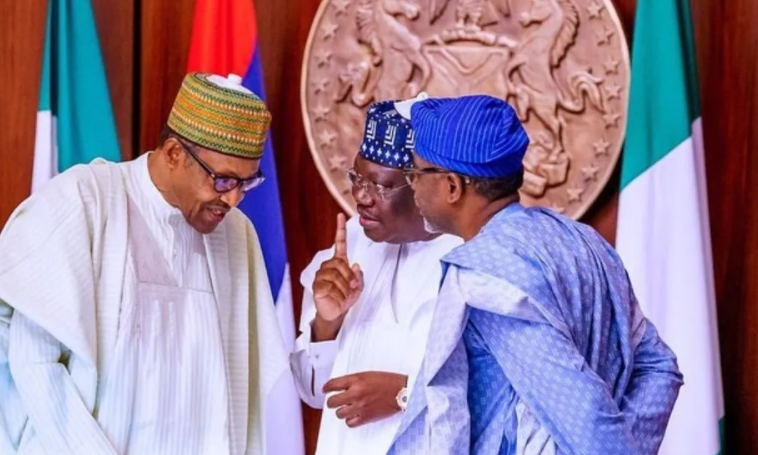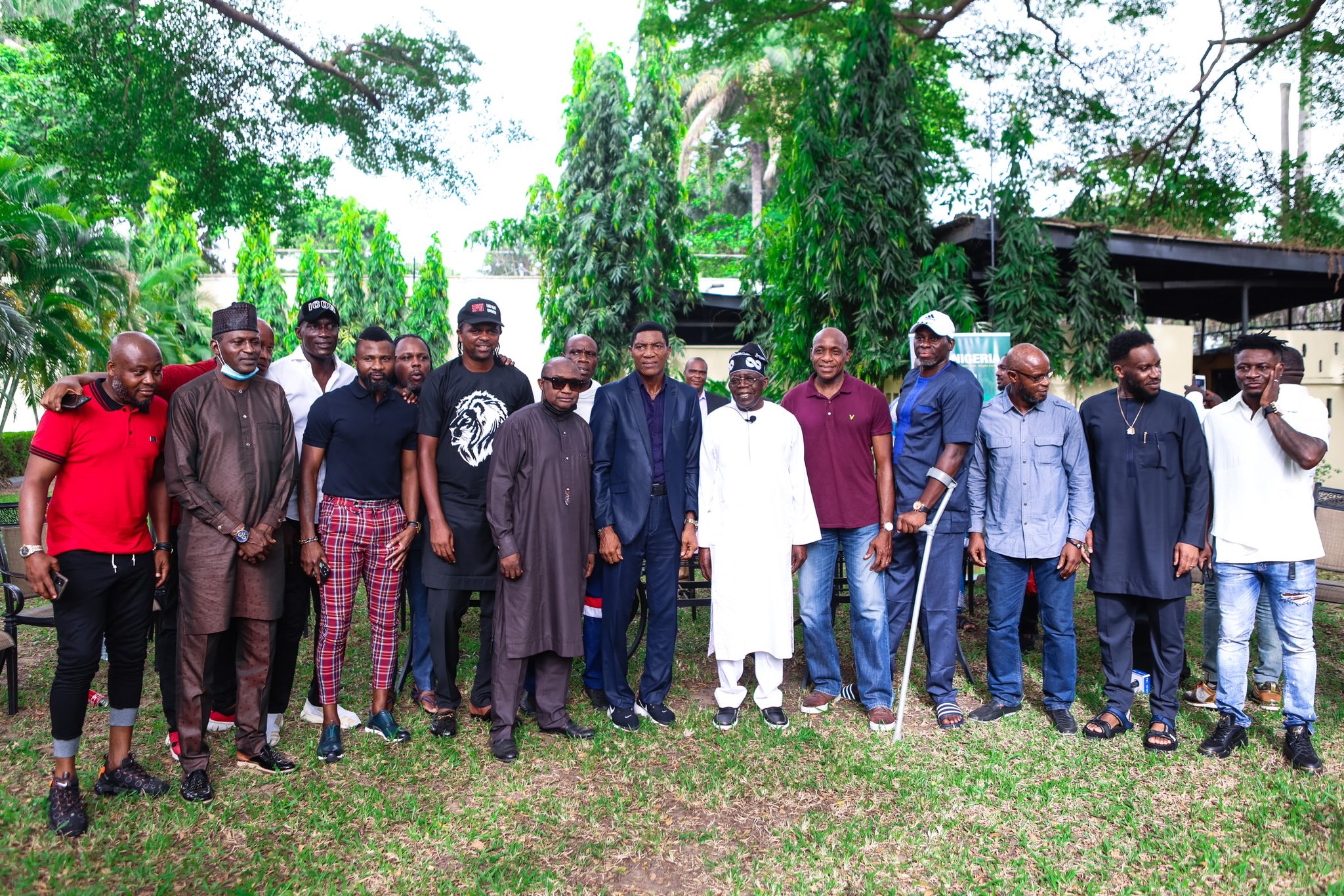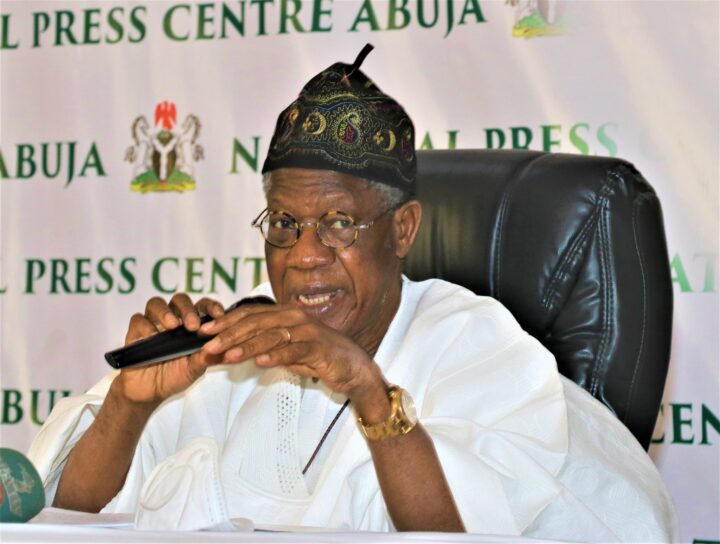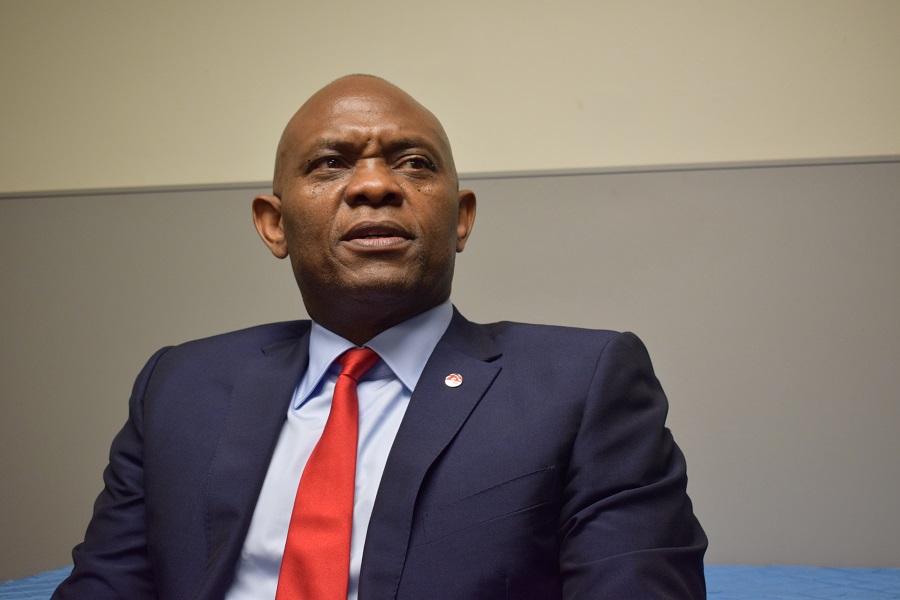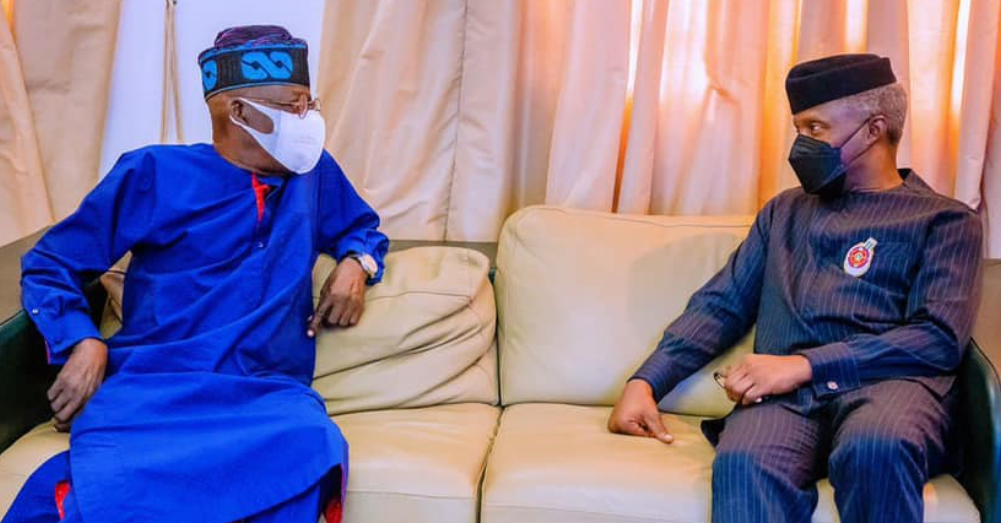Recently, David Pilling, Financial Times of London’s editor for Africa wrote an article title as above. He asked, “What is the Nigerian government for?” Trust the British, masters of subtlety and understatement. For in that article was loaded a lot of messages, some of which the Nigerian presidency got and others it ignored or could not process. The article which can be found in full here has, however, not left my mind and I believe it is worth amplifying.
We shall look at the crux of the article shortly, but let me recall that Mr Garba Shehu, the presidential spokesman, in responding to the article, called out David Pilling for ‘criticizing British Airways’ and also veered off to regale his readers about how the Western nations induced the war that imploded Libya. This is the same Libya on whose great leader (Gaddafi), Garba’s principal had severally dumped the insecurity problem that has since enveloped Nigeria. One wouldn’t have thought that our presidency also subscribed to conspiracy theories like the rest of us mortals. Nigeria’s Goodluck Jonathan was the first African leader to sign the fraudulent resolution 1973 with which Gaddafi was murdered and Libya sent back to the Dark Ages though, just as we jumped into the ongoing Ukrainian war when we could have been strategic. But I digress.
In his article titled ‘What is Nigeria’s Government for?’ Pilling had written, inter alia: “On the British Airways flight between London and Nigeria’s administrative capital of Abuja, one of the airline’s most profitable routes, nearly all the space is taken up with flatbeds. The unfortunate few making their way to a crunched economy section at the back must trudge through row after row of business class… Evidently, there is plenty of money to be made in Abuja’s corridors of power. Nigeria’s economy may be flat on its back, but the political elite flying to and from London will spend the flight flat on theirs, too… Next year, many of the members of government will change, though not necessarily the bureaucracy behind it. Campaigning has already begun for presidential elections that in February 2023 will draw the curtain on eight years of the administration of Muhammadu Buhari, on whose somnolent watch Nigeria has sleepwalked closer to disaster… Buhari has overseen two terms of economic slump, rising debt and a calamitous increase in kidnapping and banditry—the one thing you might have thought a former general could control. Familiar candidates to replace him, mostly recycled old men, are already counting their money ahead of a costly electoral marathon. It takes an estimated $2 billion to get a president elected. Those who pay will expect to be paid back… There are some promising candidates. If Yemi Osinbajo, the technocratic vice-president, were miraculous to make it through the campaign ticket and emerge as president, the hearts of Nigerian optimists would beat a little faster…But that may be to underestimate the depth of Nigeria’s quagmire. The problem is not so much who leads the government as the nature of government itself… As is said of India, Nigeria grows at night while the government sleeps — hardly surprising that some libertarian tech entrepreneurs want the government to withdraw and leave the private sector in charge… In reality, the government is not too big. It is too small. The federal budget — not counting money transferred to states — is about $30 billion, derisory for a population of more than 200 million people. Only trust in government — and a willingness to pay taxes — can redress this balance…Nigeria desperately needs an administration whose energies go not into preserving its own privilege but into providing public goods — basic education and health, rule of law, security, power, roads and digital infrastructure. It must remove distortions and subsidies that direct entrepreneurial activity from production to arbitrage”.
As a fact, I write this from the ‘unfortunate’ but-no-longer-so-cramped economy section of British Airways. Before, the economy section was unfit for human habitation due to its tightness. I could tell you that for free as an economy class aficionado who travels on his dime. And indeed very bizarrely, about two-thirds of this aircraft is first class and business. If we add premium economy section, that could be four-fifth. It wasn’t like anything I had seen before. But you cannot blame the airline for identifying that Nigeria has much money and that most of our people prefer to flaunt it by stretching out for a mere six-hour flight – most of them civil servants and their children travelling on our taxes. David Pilling’s analogy about an economy flat on its back as we spend borrowed money flying flat on our backs should be sobering. But trust Garba Shehu to try and send BA after Pilling. He certainly does not care for Nigeria to be better. Buhari’s government will soon hopefully end, together with its failed promises, utter let down of the people, and its hypocrisy.
Advertisement
But the key lesson I think everybody should draw from the write-up is what I have always said; government is very small in Nigeria, contrary to what economic liberals will have us believe. They deliberately and willfully ignore the data. Many of them are ensconced in countries where the public sector functions well and is big enough to cover critical human functions. However, they don’t want their country to move ahead and have a public sector that really provides services that the people need. Perhaps it will make them irrelevant. In 2019, prequel to the elections, I did a survey on this matter detailing how the National Health Service and the Department of Defense were the two highest employing companies in the world, with about 1.9 million and 4 million employees for the UK and the USA respectively. For us here, we don’t have much by way of good, customer-facing government personnel on the field, and that is where we must start from. What we have are wicked souls extracting rents and bribery and making life difficult for ordinary Nigerians. We also don’t need people shuffling papers and hiding files in offices and secretariats. We need them in the field where their work could be benchmarked.
Incidentally, the man who has caught my fancy and to whom I’ve been drawing attention lately with regard to the 2023 elections – Bola Tinubu – thinks like David Pilling. He advocated at his 2019 birthday symposium that: “The issue of insecurity, unemployment and extremism has many things to do with governance, over time. We must tackle our deep and widespread poverty…. If we limit the government’s role under the erroneous assumption that government spending is intrinsically unproductive, then we tether ourselves to failure. We would do well to more critically study how other populous nations such as the UK, US, Germany and China charted their course during their formative years…. You will see that they did not adhere to a small government or the purportedly free market…. Government engaged in massive spending on infrastructure and education while also engaging in policies that protected industrial development and key aspects of the agricultural sector…Only when they matured and held advantages over other nations, did the UK and US begin to champion free markets and small government… We would do well to understand this history and learn what it means for our own pursuit of development. The development of any populous nation has always been dependent on the ability of the government to allocate sufficient funds to projects and programs that create and encourage enduring growth and employment… We must reject that mode of thinking that assumes government expenditure is inherently unproductive as well as harmful to the overall economy… It is not the fact that government expenditure is intrinsically wrong any more than one can say all private sector activity is economically positive…Government can be wasteful or it can be the key component to growth just as a private sector business can function profitably or spend itself into bankruptcy… Fiscal wisdom but not necessarily austerity is required for an economy like ours in a time like this, to ensure equitable wealth redistribution and meaningful use of resources…The years have shown that the private sector is much too weak to spur the growth we need…If the private sector could manage this feat, it would have already done so. Where the private sector is too weak or unable, the government must fill the void… This means the government must not be afraid to embark on an activist fiscal policy to create jobs, build infrastructure and develop our industrial sector as well as continue to improve agriculture…. This means the government must spend money on those things that bring the requisite economic returns for the nation… (local and state governments should) shape their budgets to suit their revenues, as the federal government spends more to create more jobs for the youth”.
I don’t know for how much longer we can hope to keep deceiving ourselves over what is so obvious. Government cannot continue to delude itself with the idea that youth entrepreneurship is the way forward. Yes, it lulls government to sleep by taking a number of youths out of circulation for a while. But it is not scalable in this country, yet. We have tried and it has consistently failed. Governments to come must find ways of engaging the people of Nigeria to change Nigeria. It’s a factor substitution matter. But our governments are not ready to make the investment required. The investment is huge by the way, but it is viable. Rather than farm out our development entirely to foreigners (for the capital and technology), we should press in our population. Let our youths make their own mistakes but only Nigerians will develop Nigeria. History tells us that these developed countries passed that route and there are no shortcuts. But, very unfortunately, what we have here are universities and business schools teaching our youths wrongly, and from where advisers to the government are chosen. We have a plethora of ‘entrepreneurship’ experts who have never practised entrepreneurship or who did, backed up by money they acquired in government. They don’t know what entrepreneurship is about, and our entrepreneurship so far has not been innovative – it is all about making rent and spreads on imported machines or ideas. Nothing profound has come out of our entrepreneurship so far, contrary to what the developed countries have been able to achieve with their entrepreneurship – with which they have taken over the world. Our approach is rootless, baseless, and artificial.
Advertisement
I will give three examples of what I mean. In my previous research, I found that the National Health Service (NHS) is the largest employer in the United Kingdom (with over 1.9 million employed – even more with the COVID-19 crisis). In fact, the UK as well as other ‘developed’ nations seize opportunities like COVID to expand employment. It is incredible how the UK build elaborate employment opportunities around COVID-19, up to employing people who check you in your hotel or homes to ensure you don’t move around after travelling when the pandemic was still an issue. In the USA, the biggest employer is the Department of Defense (almost 4 million employed) – because the USA had chosen to be a warrior nation to maintain its number 1 status in the world. In the UK, two of my closest pals recently described their jobs. One who drives a cab told of how he was assigned to collect two autistic boys from home to ensure they went to school, and to return them home every afternoon. For that, he gets paid about 3,000 pounds monthly by the City Council. The two autistic boys are even entitled to a personal assistant (another job), who rides with them to and fro. I was like ‘who cares in Nigeria?’. We can see that countries, where they care about human beings, will always make progress and maintain sanity. Why will silly Nigerian big men not send their children there to school, go there for health and other tourism, while they piss on their own country? My other friend runs a home for people with disabilities. The council also pays – and this is big money. The council is concerned with ensuring that these poor people don’t become vagrants in society, so my friend’s company (the home), houses them, feeds them thrice daily, and ensures they take their drugs. My friend employs 19 people who run shifts.
This is how governments create jobs. I think, in summary, both those who run governments here and their libertarian friends who talk of private sector everything may not have attained that level of humanity that sees the opportunities for reorganizing society and extracting great value, simply by investing in people and organizing the environment. We live worse than beasts here and complain about not having money or jobs. Something just has to start changing. We hope in the coming government, but contrary to David Pilling’s hopes, I think Yemi Osinbajo is a libertarian and does not see the benefit of a well-organized, competent government that covers what governments should adequately cover – education, security, environment, health, social services – or the tremendous financial, reputational, sociopsychological and other benefits that could accrue from such an approach. A Tinubu approaches that point if only Nigerians will try and understand him, study his speeches and actions and past, and give him an opportunity. That is where I stand for now.
I realize that I have spent quite a bit of time writing about this fact, including the state of our dismal budgets which have nothing in them for the real people of Nigeria at a mere $140 per head all through the year. I have written two books on this – ‘Change is Going to Come’ and ‘Revolution of Ideas’, several articles, and even my PhD thesis (which I have published into a book), is on this matter of how to really solve our unemployment problem, away from the perennial self-deception with ‘youth entrepreneurship’. I could say I have tried my best, but will not stop until we see a major shift. On that day, the Nigerian economy shall have begun its sure march to glory, but not until then. We may just keep going round in circles
Views expressed by contributors are strictly personal and not of TheCable.

